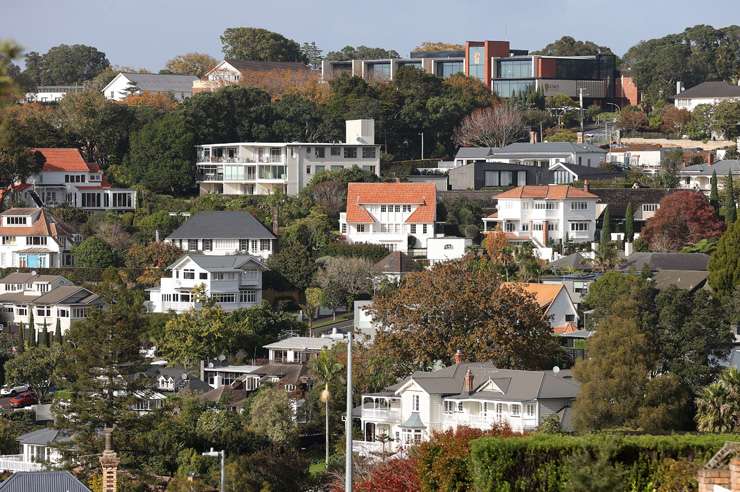Real estate agents around the country have noticed an uptick in buyer enquiry from migrants and overseas Kiwis looking to return home.
It comes as net migration has turned around into positive numbers for the first time since the pandemic hit, with a net 5700 population increase across the country to November 2022.
That was a big turnaround from the 12 months to February 2022, when New Zealand lost 18,000 people, says CoreLogic chief economist Kelvin Davidson.
“The turnaround here has been pretty sharp, and actually a lot sharper than what people really expected.”
Start your property search
While the lift doesn’t take net migration back to pre-pandemic levels, when it averaged at 58,000 per year for 10 years, Davidson expects migration numbers to rise in 2023.
“It won’t get up to 58,000 - no one’s really expecting us to get back to that - but it will be better than what it has been in the last two years.”
Read more:
- The buyers who are desperate to spend $12m
- Thousands of Chinese eyes on the NZ housing market
- Kiwis cashing in: Goodbye Auckland house prices, g’day Australia
Davidson is cautious about the extent to which migrants can reverse the recent housing market slump, which has mostly been driven by the jump in interest rates. “Interest rates are expensive for new borrowers and expensive for people repricing on to higher loans,” he says.
“You still have loan to value ratio [restrictions], and potentially you have debt to income ratio caps coming in. Inflation is still an issue, so don't expect interest rates to come down quickly.”
In theory, more people in the country relative to the same number of houses means mounting pressure on prices, says Davidson. “But I think that’s the sort of long run structural thing. [Currently] it’s much more about the shorter term cyclical factor, which is interest rates and credit.”
Davidson adds that new migrants often don’t have the banking history in order to borrow, and might not have the legal right to buy a house straight away unless they are returning New Zealanders. They also may want to take their time deciding where they want to live as well. It’s more likely the migrants’ money could ease the falls, not turn the market around.
What the rise in net migration should do, he says, is boost demand for rental properties in the big centres.

Returning migrants with bigger budgets often target prestige suburbs like Remuera in Auckland. Photo / Fiona Goodall
One agent who has seen an increase in overseas buyer enquiry is David Rainbow, of Bayleys Remuera. “We have noticed an increase, with a couple of our recent sales going to overseas buyers who are moving, or have moved, to live here,” he says.
“In the last week, I have had enquiries from people who have moved here and were renting until they were in the position to buy.” One was from Singapore and another two were from the UK and had just gained residency. All three were looking for something around the $5m mark. A fourth buyer, who had just returned to NZ after a three-year stint in the United States is looking in the $6m to $8m range, Rainbow says.
Wellington-based Ray White real estate agent Ben Atwill says the migration numbers will take time to flow into the housing market, noting that some of the migrants who arrived pre-Covid were only just now ready to buy. “They've been here, maybe pre-Covid, and now have an opportunity to gain residency. Over that period of time, they've managed to form a credit history, and they've confirmed that that's absolutely where they want to go.”
The number of new migrants making contact is increasing, though, even if they’re not quite ready to step into the market. “They are mainly soft enquiries. It's usually, ‘Hey, Ben, look, we thought we'd just touch base. You know, we might be 6 to 12 months out from buying’.”
Having said that, Atwill has recently fielded enquiries from the UK, Israel, the US and Canada. “The UK one is the only one chomping at the bit. He left the UK due to Brexit and has been here a while. We have also been contacted by a New Zealand couple that have been living in Melbourne who are coming home.”
Christchurch Bayleys agent Adam Heazlewood has also started to see an increase in overseas buyer enquiry, albeit a small one. Most of the enquiry has come from Australia, although noted he was currently working with clients who are moving from Singapore. “They have family who have already moved here,” he says.

CoreLogic chief economist Kelvin Davidson: “The turnaround has been pretty sharp - a lot sharper than what people expected.” Photo / Peter Meecham
He is also seeing an uptick in expat enquiry. “They are often people that have some form of family connection to New Zealand. It might be a UK husband and a Kiwi wife that are making the shift. We're seeing a bit of that.”
Overseas buyers typically show interest in Christchurch’s high-end suburbs - Merivale, Fendalton and St Albans. If they have children, they are buying in good school zones. If they want views, they are interested in Sumner, Scarborough, or Kennedy’s Bush.
Most of the outside interest in Christchurch property was from Auckland, not overseas, says Heazlewood.
James Wilson, head of valuations at Valocity, says migrant buyers are a small part of the housing market. “The overwhelming majority of residential stock in New Zealand is bought by domestic buyers, and that's been the case for a long time.”
Also most migrants are spread across all sections of market, with some competing with first-home buyers and others competing against high-net worth individuals. “It makes it very tricky to group them as a buyer type. They can be looking at all property types across the whole country.”















































































